The power of play: Building resilience for children affected by the war in Ukraine
On the occasion of the first ever International Day of Play, we acknowledge the vital role of play in our education, child protection, and mental health and psychosocial support initiatives across Ukraine, Moldova, Poland, and Romania.
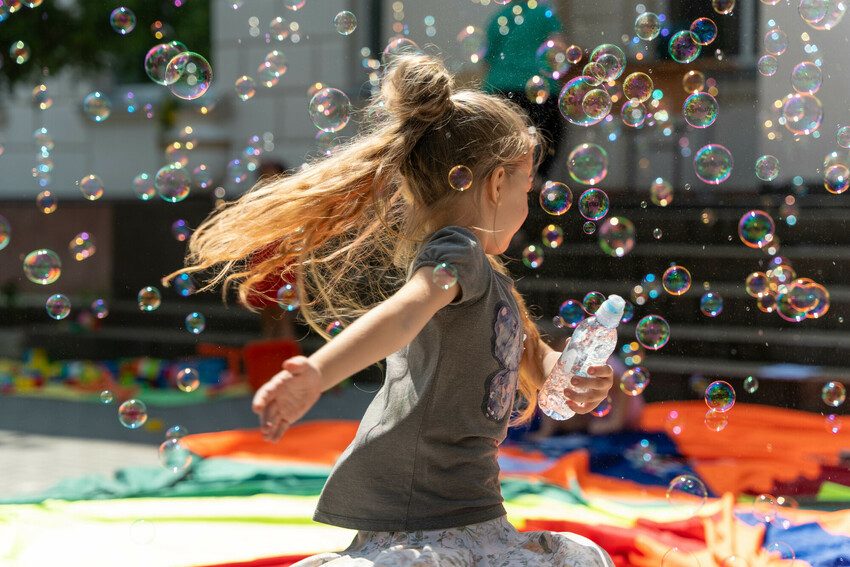
As the global community confronts the challenges posed by protracted conflicts and humanitarian crises, the importance of quality, inclusive play is non-negotiable. Play is a right enshrined in the UN Convention on the Rights of the Child and is an important part of achieving the 2030 development agenda. It’s a fundamental right that must be protected and nurtured, especially for the most vulnerable children – those at risk of losing their childhood.
“When I play, I feel brave, I feel like I can do anything.”
Boris, 9, living in Moldova for 2 years
Since the escalation of the war in Ukraine in February 2022, approximately 3 million children from Ukraine require humanitarian assistance, with many of them forced to flee their homes. The impact has been devastating, with many children shouldering adult responsibilities from a young age, dropping out of school, and facing social isolation and stress.
“The war stole the most valuable thing from children. This is the childhood, the right for the education and for play,” says Stela Vasluian, Executive Director of Amici dei Bambini Moldova, Plan International’s partner in Moldova.
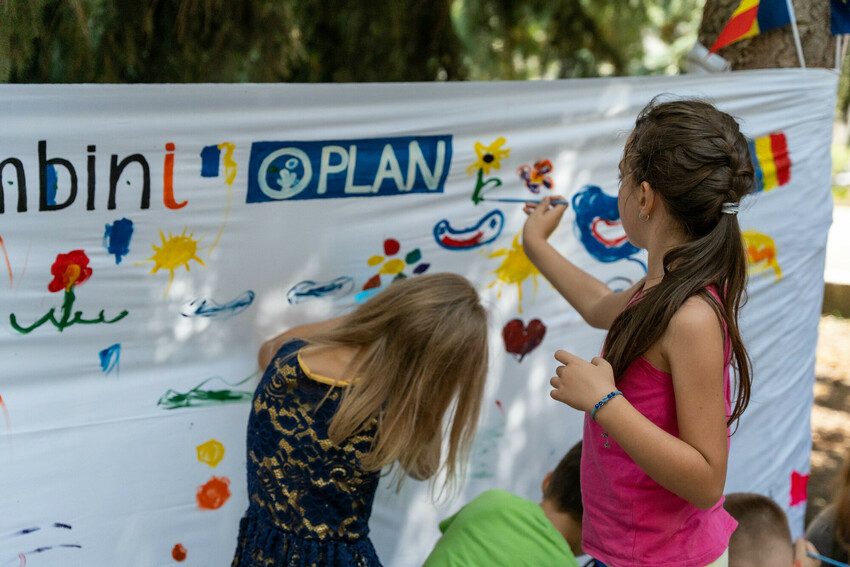
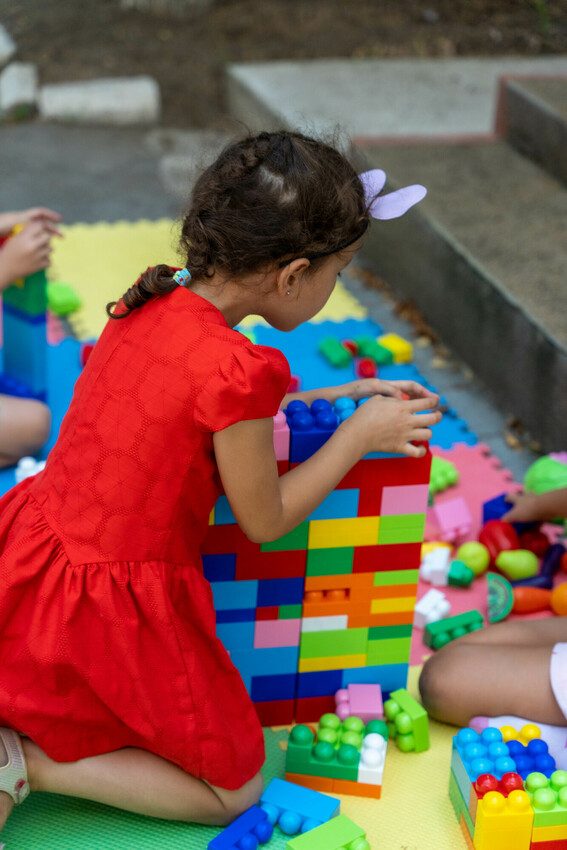
In situations of crisis and insecurity, quality, inclusive play helps to facilitate the social and emotional wellbeing, development and resilience of children and young people in all their diversity. “Through play, children are helped to forget about their fears, they can express and better understand their emotions and try to see new perspectives of a better life, in peace. Play also helps displaced children to socialise and to integrate into the new context. The language of play is international, and all children understand it,” Stela adds.
Whether through games, storytelling, or creative activities, quality, inclusive play empowers girls and boys, supports their agency, and enables them to reclaim a sense of routine in insecure circumstances. “As a refugee girl, I always struggled to connect with my peers, especially being in another country. As we play, we can learn other things from one another, and most importantly, we can share what worries or excites us,” says 11-year-old Alina from Odesa.
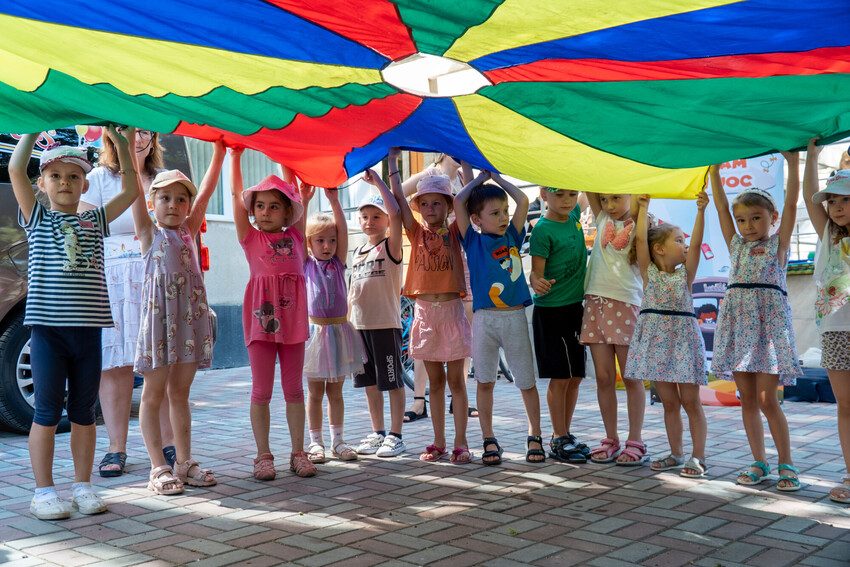
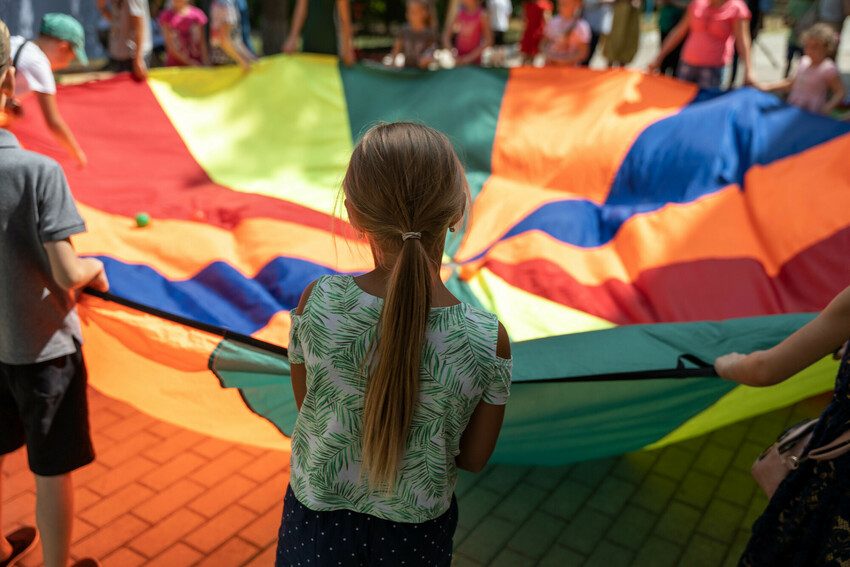
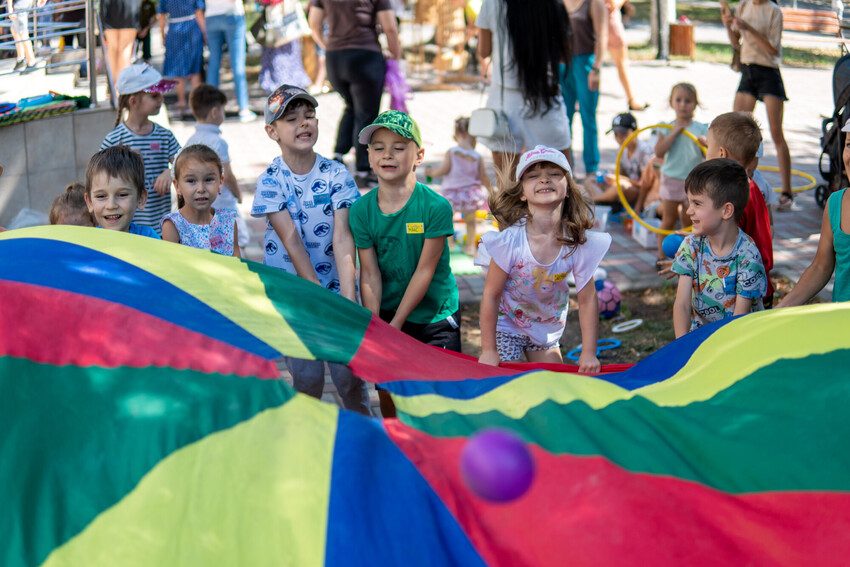
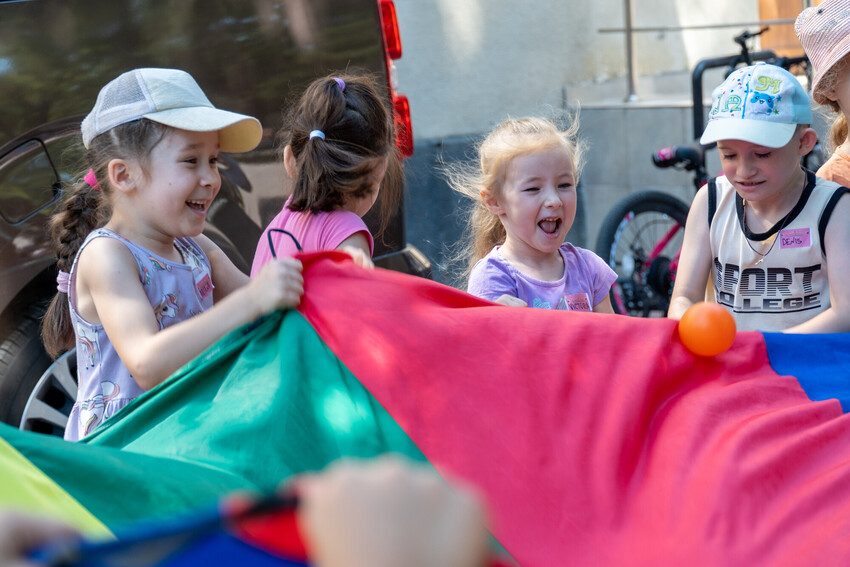
Since 2022, Plan International, in collaboration with local partners, has implemented various play-based programmes and activities across Ukraine, Moldova, Romania and Poland. One such initiative in Moldova is the Ludobus and Ludoteca – mobile play bus and libraries – providing play-based learning opportunities to children from Ukraine and the host community.
“I am coming here [the Ludobus activity] because I feel happy here. I dance, I sing, and music is playing here. We play football, but my favourite entertainment is drawing,” says Danya, a 7-year-old refugee boy from Mykolaiv in the South of Ukraine.
Just like Danya, other children also enjoy the vibrant and joyful games of the Ludobus, run by the local organisation Amici dei Bambini.
“As we play, we can learn other things from one another, and most importantly, we can share what worries or excites us.”
Alina, 11
“When I play, I feel brave, I feel like I can do anything”, shares 9-year-old Boris who has been living in Moldova for over 2 years now. “I love it when we have the Ludobus coming to visit us. We can all get together with other children, and we can get to know each other.”
Play is never just play
Amidst the war, organisations in Ukraine continue to establish play-based initiatives to support children. “‘In such conditions, it is crucial to engage children in their primary activity of play. Games not only serve developmental and educational purposes, but also provide a therapeutic function, helping to divert their attention and bring calm,” explains Marina Vinokurova, Child Friendly Space Facilitator, Slavic Heart, a local organisation in Ukraine working with children.
As the war persists and more children are displaced, specialised play zones in refugee centres and community spaces are being established. These zones, designed to offer educational and therapeutic play, help strengthen children’s resilience and build their emotional and social development.
“At Plan, we prioritise the holistic wellbeing of children and adolescents affected by the war in Ukraine by integrating play-based learning into our programming. Play is so much more than just a recreational activity; it’s an integral component that complements education, child protection, and mental health and psychosocial support initiatives,” says Lucy Strickland, Education in Emergencies Specialist at Plan International.
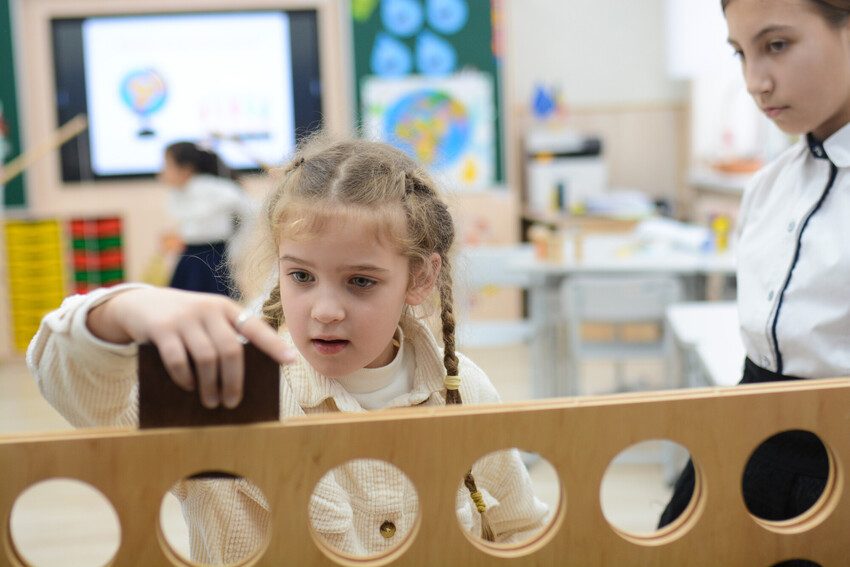
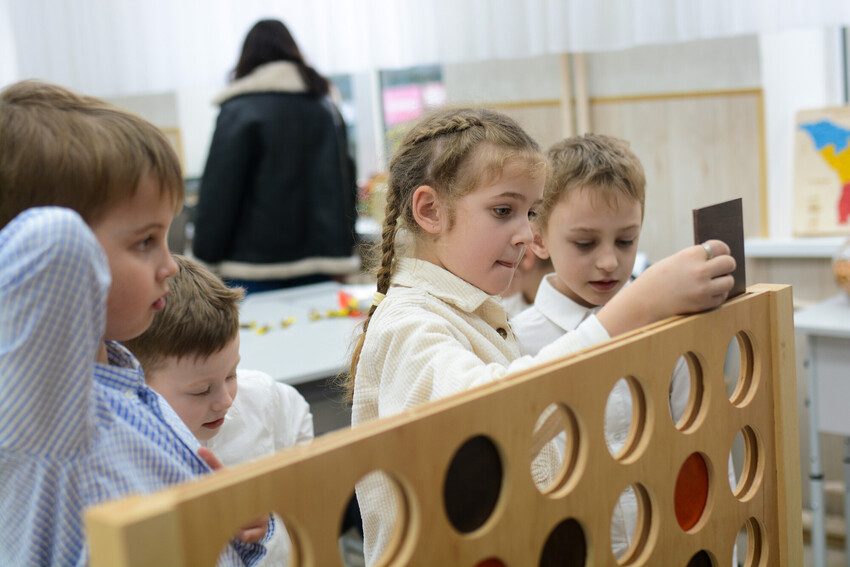
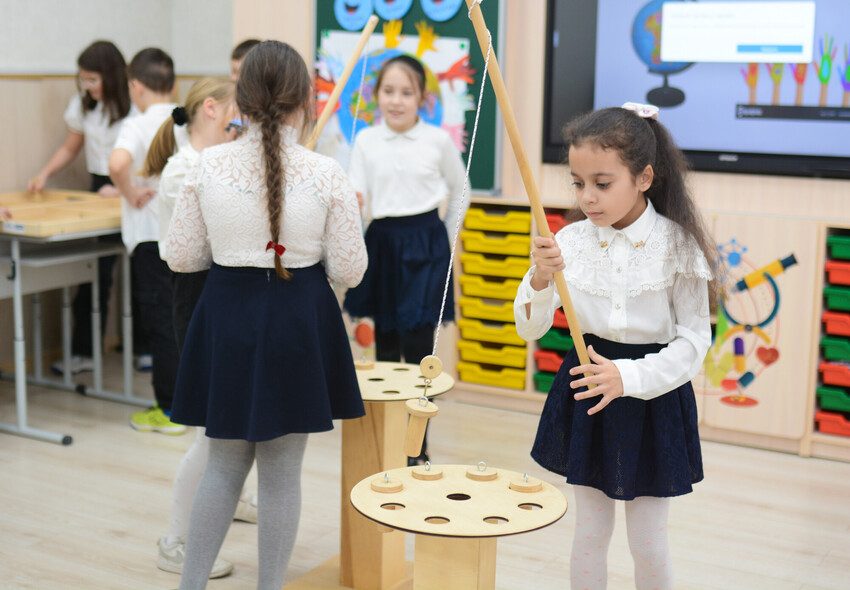
Play – a driver of children’s rights during complex emergencies
The power of play lies in providing children and adolescents with age-appropriate educational and psychosocial support, fostering resilience, cognitive and emotional development, social connection, and a sense of stability.
“The collective experience across Ukraine and refugee-hosting countries underscores the profound impact of play in crisis contexts. Playful learning approaches have been shown to significantly enhance children’s learning and wellbeing outcomes, equipping them with the skills, confidence, and competencies to shape their own futures,” adds Lucy.
As Plan International and our local partners commemorate the inaugural International Day of Play on June 11 by celebrating the power of play for girls and boys in all their diversity, we will continue to prioritise and safeguard every child’s right for time and space to play, and provide ongoing support for quality, inclusive play as part of the Ukraine crisis response.
We ask you to join the global movement to celebrate play on June 11th, and every day!
Find out more at www.internationaldayofplay.org
Read the Call to Action from children and young people – https://childfriendlygovernance.org/international-day-of-play
By Anna Celac, Communications Specialist, Plan International Moldova, Camila Marino, Head of Communications, Ukraine Response and Lucy Strickland Education in Emergencies Specialist, Plan International.

Categories: Early childhood development, Emergencies


